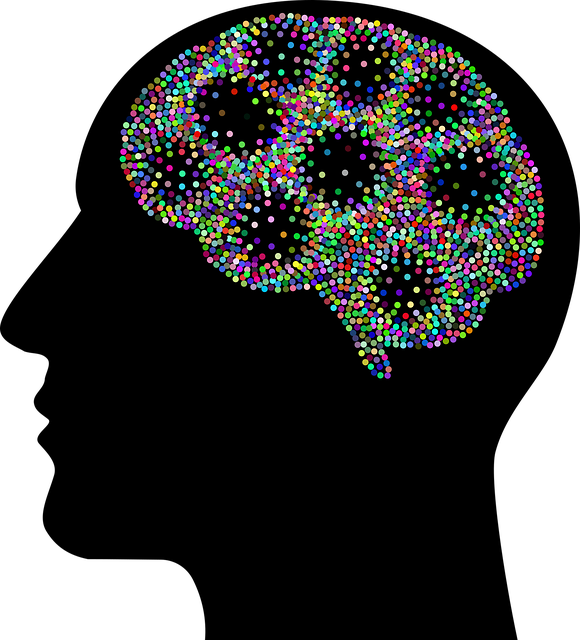In Highlands Ranch, efforts to reduce stigma around mental health, particularly PTSD, involve educational programs, support groups, and community engagement. Initiatives like Stress Management Workshops, emotional well-being promotion, and podcast series encourage open dialogue and provide practical tools for stress management. Specialized PTSD therapy, utilizing evidence-based practices such as Compassion Cultivation, empowers individuals to overcome trauma and challenge societal perceptions, fostering a more supportive and inclusive community environment.
In today’s digital era, mental illness stigma remains a significant barrier to seeking help. This article delves into effective strategies for reducing stigma, with a focus on the crucial role of therapy in Highlands Ranch for conditions like Post-Traumatic Stress Disorder (PTSD). We explore how comprehensive approaches can foster understanding and support, ultimately encouraging those struggling with mental health issues to access the care they deserve. By examining the impact of stigma and implementing evidence-based solutions, we aim to create a more inclusive environment where individuals can heal without fear of judgment.
- Understanding the Impact of Stigma on Mental Health
- Strategies for Reducing Stigma: A Comprehensive Approach
- The Role of Therapy in Highlands Ranch for Post-Traumatic Stress Disorder (PTSD) and Stigma Mitigation
Understanding the Impact of Stigma on Mental Health

Stigma surrounding mental health issues can have profound effects on individuals’ lives. It often prevents people from seeking help and support, leading to prolonged suffering and worsened conditions. The impact is particularly evident in cases of Post-Traumatic Stress Disorder (PTSD), where understanding and empathy are crucial for recovery. In Highlands Ranch, various initiatives aim to reduce this stigma through educational programs and support groups.
Efforts such as Stress Management Workshops by local organizations, Emotional Well-being Promotion Techniques, and Mental Wellness Podcast Series production play a vital role in normalizing conversations about mental health. These activities not only provide practical tools for managing stress but also foster a sense of community and belonging, which is essential for fostering open dialogue about PTSD and other mental health concerns.
Strategies for Reducing Stigma: A Comprehensive Approach

Reducing stigma associated with mental illness is a multifaceted approach that requires collective efforts from individuals, communities, and even policy makers. One effective strategy involves self-care routine development for better mental health, encouraging open conversations about mental wellness to destigmatize these discussions. By integrating burnout prevention techniques into everyday life, people can foster resilience against stress and promote emotional well-being.
In Highlands Ranch Post-Traumatic Stress Disorder (PTSD) therapy, for instance, professionals play a crucial role in normalizing mental health challenges. They offer evidence-based treatments and provide resources that empower individuals to manage their conditions effectively. Through education, awareness campaigns, and supportive environments, mental illness stigma reduction efforts can lead to greater understanding and acceptance of diverse mental health experiences.
The Role of Therapy in Highlands Ranch for Post-Traumatic Stress Disorder (PTSD) and Stigma Mitigation

In Highlands Ranch, post-traumatic stress disorder (PTSD) therapy plays a pivotal role in mental illness stigma reduction efforts. Through specialized treatments, therapists help individuals navigate the complexities of PTSD, fostering understanding and empathy within the community. The process involves evidence-based approaches such as Compassion Cultivation Practices, which promote self-kindness and reduce blame, thereby challenging societal perceptions of trauma survivors.
Additionally, conflict resolution techniques are integrated into therapy to address interpersonal barriers caused by stigma. By teaching effective communication skills and promoting positive interactions, these practices empower individuals to advocate for their mental health needs. As a result, the community in Highlands Ranch becomes more supportive and inclusive, contributing significantly to the overall mental illness stigma reduction efforts.
Mental illness stigma reduction is a multifaceted endeavor, with strategies that range from public education to therapeutic interventions. As previously mentioned, therapy plays a significant role in treating conditions like PTSD in Highlands Ranch, not only addressing the disorder but also tackling the associated stigma. By employing a comprehensive approach, we can foster an environment where individuals feel supported and empowered to seek help without fear of judgment. In light of the above, it’s essential to continue these efforts to ensure better mental health outcomes for all.














